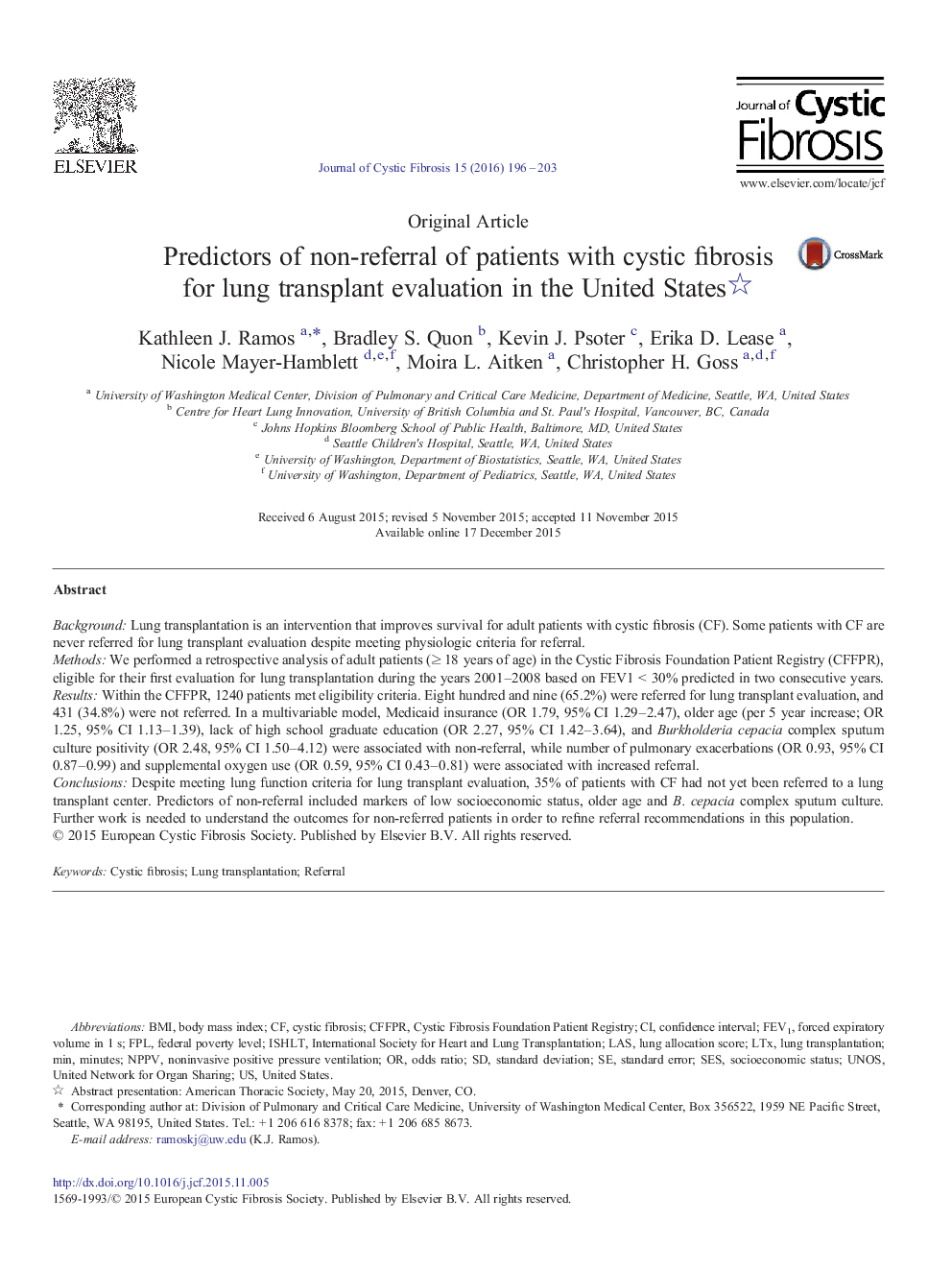| Article ID | Journal | Published Year | Pages | File Type |
|---|---|---|---|---|
| 6240280 | Journal of Cystic Fibrosis | 2016 | 8 Pages |
BackgroundLung transplantation is an intervention that improves survival for adult patients with cystic fibrosis (CF). Some patients with CF are never referred for lung transplant evaluation despite meeting physiologic criteria for referral.MethodsWe performed a retrospective analysis of adult patients (â¥Â 18 years of age) in the Cystic Fibrosis Foundation Patient Registry (CFFPR), eligible for their first evaluation for lung transplantation during the years 2001-2008 based on FEV1 < 30% predicted in two consecutive years.ResultsWithin the CFFPR, 1240 patients met eligibility criteria. Eight hundred and nine (65.2%) were referred for lung transplant evaluation, and 431 (34.8%) were not referred. In a multivariable model, Medicaid insurance (OR 1.79, 95% CI 1.29-2.47), older age (per 5 year increase; OR 1.25, 95% CI 1.13-1.39), lack of high school graduate education (OR 2.27, 95% CI 1.42-3.64), and Burkholderia cepacia complex sputum culture positivity (OR 2.48, 95% CI 1.50-4.12) were associated with non-referral, while number of pulmonary exacerbations (OR 0.93, 95% CI 0.87-0.99) and supplemental oxygen use (OR 0.59, 95% CI 0.43-0.81) were associated with increased referral.ConclusionsDespite meeting lung function criteria for lung transplant evaluation, 35% of patients with CF had not yet been referred to a lung transplant center. Predictors of non-referral included markers of low socioeconomic status, older age and B. cepacia complex sputum culture. Further work is needed to understand the outcomes for non-referred patients in order to refine referral recommendations in this population.
